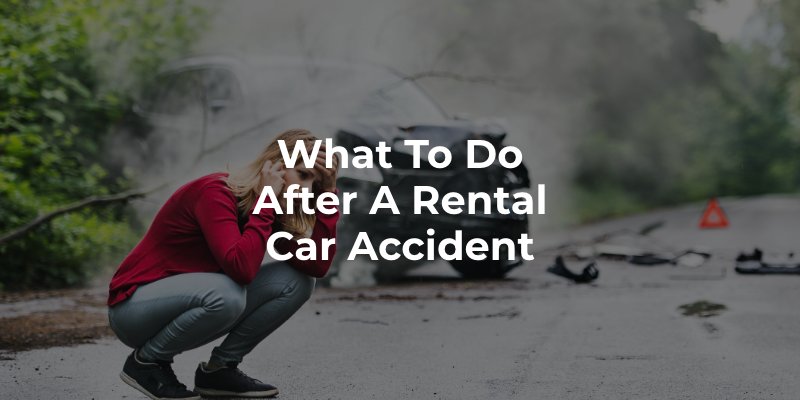Our attorneys have been assisting the Orange County and Southern California communities for over 40 years.
After an accident involving a rental vehicle occurs, you likely have a bunch of questions that may not have readily available answers. Regardless of whether or not you were in the rental vehicle or were in another vehicle affected by a rental, there are some steps you should take fairly quickly in order to help both ensure that you receive any compensation you are owed and that you are not held accountable for something you didn’t do. Keep reading to learn more from our Orange County car accident attorneys.

As with any car accident, the first priority is ensuring everyone’s safety. Check for injuries and, if necessary, call emergency services immediately. If the accident was minor and no one is seriously injured, move the vehicles out of the flow of traffic to avoid further accidents.
Turn on your hazard lights and set up reflective warning triangles if you have them. It is important to stay calm and composed, as this will help you make clear decisions about what to do next.
Under California law, any car accident that results in injury (regardless of severity), death, or property damage over $1,000 must be reported to the California DMV within ten days. Regardless of whether you are in a rental vehicle or your personal car, you are required to file this report. Failing to report an accident could result in penalties and complications with insurance claims. Additionally, the police report will provide crucial evidence for determining fault and insurance claims.
After ensuring everyone is safe and calling law enforcement, gather as much information from the accident scene as possible. Proper documentation is critical when dealing with rental car accidents. This includes:
If you were driving a rental vehicle, notify the rental car company about the accident as soon as possible. Most rental car agreements require that accidents be reported within 24 hours. Failing to inform the rental company could lead to complications in handling the damage or insurance claims. When you speak to the rental company, follow their instructions about where to take the vehicle and whether any additional steps are needed.
The rental car company may be responsible for filing an insurance claim if they provided insurance coverage through the rental agreement. However, if you opted out of the rental company’s insurance, you will likely need to handle the claim through your personal auto insurance or credit card provider, depending on the coverage you selected.
In California, determining fault in a rental car accident can be more complicated than in a standard vehicle crash, as there are additional factors to consider. In California, liability for an accident typically falls on the party who was negligent. The driver of the rental car, other drivers, or even the rental car company could be at fault, depending on the circumstances. Some common scenarios include:
The insurance process for rental car accidents can vary based on the coverage in place at the time of the accident. The most common types of insurance coverage for rental cars include:
Rental car accidents can be complicated, and handling claims on your own can be overwhelming. Even if the fault seems clear, there may be legal challenges related to insurance coverage, rental agreements, and liability. A skilled attorney can help you navigate these complexities and protect your rights.
Consulting with an attorney is particularly important if:
A car accident attorney will assess your case, negotiate with the insurance companies, and pursue compensation on your behalf. Whether through settlement or litigation, an attorney can help ensure that you receive the compensation you deserve for your injuries and losses. If you were injured, contact our firm today for a free claim consultation and to get started filing a personal injury claim.